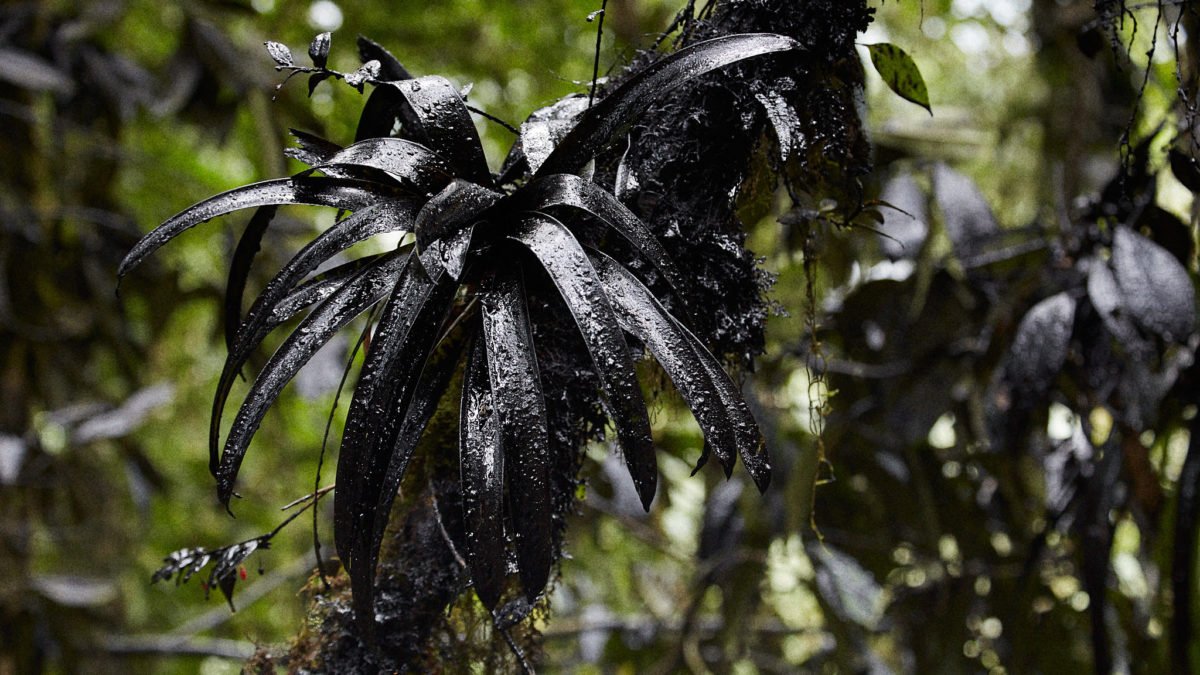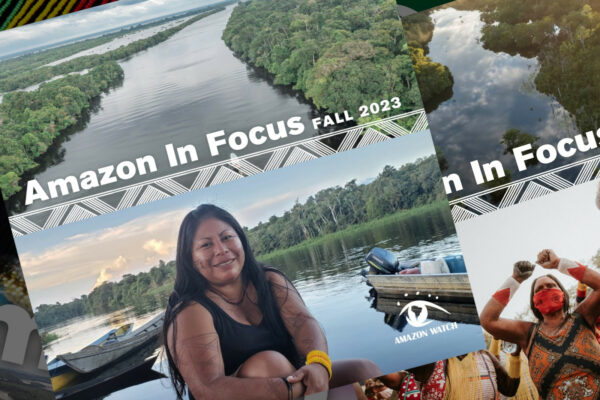Rainforest photos for press use
Unceded Ancestral Ramaytush Ohlone Territory / San Francisco, CA — Ahead of Citigroup Investor Day, environmental campaigners at Amazon Watch and Stand.earth are releasing a report spotlighting the bank’s exposure and central role in providing financing and investments of tens of billions to oil and gas companies in the Amazon. Indigenous leaders and federations directly impacted by oil drilling are calling on Citigroup to commit to exit Amazon oil and gas. Citigroup’s investments and financing in Amazonian oil are tied to corruption, pollution, deforestation, and Indigenous rights violations – incompatible with its climate forward image. Without a clear commitment to end its role as a major driver of the fossil fuel industry in the Amazon, Citigroup’s climate promises remain inadequate.
“Oil drilling in our Amazon has brought contamination, disease, deforestation, destruction of our cultures, and the colonization of our territories. It is an existential threat for us and violates our fundamental rights as Indigenous peoples. We are calling for an end to all new extraction on our lands, and as our ancestors and science now affirm, we must keep fossil fuels in the ground,” shared Nemo Andy Guiquita, a Waorani Indigenous leader and Women and Health Coordinator for the Confederation of Indigenous Nationalities of the Ecuadorian Amazon (CONFENIAE).
In 2021, Citigroup released an updated energy policy that rules out financing for oil and gas in the Arctic, yet Citi has made no commitments related to its financing of the oil industry in the Amazon where new oil drilling is a gateway to deforestation. In a global declaration by Indigenous federations and allies, banks are being called to end financing of commodities like oil that are responsible for fragmenting and polluting the Amazon. Leadership on this issue is coming from European banks – including ING, Credit-Suisse, Natixis, Societe Generale, BNP Paribas, and Intesa – all of whom have made commitments to end oil industry or trade finance in Ecuador – consistent with international calls for protecting 80% of the Amazon by 2025 – a critical threshold to prevent the biome from unraveling. Not a single U.S. bank has made any commitments.
With the Amazon rainforest at the tipping point of ecological collapse, Citigroup’s lack of an exclusion policy and exit strategy on Amazon oil and gas presents a significant reputational risk. Its financing has been instrumental in the build-out of oil drilling and infrastructure in critical rainforest areas and Indigenous territories. Its investments have long-term impacts and have supported the expansion of oil production, in many cases despite strong opposition from Indigenous communities. Citigroup has held the largest financial involvement by a foreign bank in state-owned oil companies operating in the Amazon. Its clients include Petrobras in Brazil, EcoPetrol in Colombia, PetroAmazonas/Petroecuador in Ecuador, and PetroPeru in Peru.
“The Amazon is the last place on the planet where oil drilling should be expanding, so Citigroup CEO Jane Fraser has a critical opportunity before her. Will she show a new kind of leadership and commit to aligning bank policy with what the world needs and what generations of Indigenous peoples and concerned citizens are calling for, or will she allow for business as usual and continued degradation of the Amazon?” asked Tyson Miller, Amazon Campaigns Director at Stand.earth.
In January, Citigroup released an outline of its latest plans to achieve net zero in its energy and power portfolios. The bank announced it will use “absolute” emissions reduction targets, which contrast with the “intensity” targets currently used by other major banks tied to Amazon oil, such as JPMorgan Chase and Goldman Sachs. Because absolute emissions increases are what drive the climate crisis, Citi’s decision to track its financed absolute targets instead of its financed intensity targets is a step toward accountability.
“Yesterday’s IPCC report makes clear the urgent need for immediate emissions reductions. While Citigroup has made strides on climate by adopting absolute emissions reductions targets instead of intensity targets, it fails to account for the impact its financing plays in the Amazon, a region of invaluable ecological and cultural significance. Oil expansion and development in the Amazon rainforest not only runs contrary to scientific consensus on climate but also pollutes and emits at every step of the process – from well to wheel,” said Pendle Marshall-Hallmark, Climate and Finance Campaigner at Amazon Watch.
Citigroup is one of the only U.S. banks that has been providing funding to PetroEcuador (formerly PetroAmazonas), the state oil company of Ecuador, and the country is now planning to double oil production. Many of those expansion projects are slated for extraction in largely pristine and roadless Amazon rainforest and titled territories of Indigenous peoples, who have not provided their consent, a right recently upheld by the country’s Constitutional Court. Despite averaging two oil spills per week, the country is currently expanding drilling in protected areas such as Yasuní National Park, building roads in intact forests, and in areas near Indigenous peoples living in voluntary isolation. Oil concessions that span approximately 7.5 million acres or 3 million hectares of rainforests are slated to be auctioned off this year.
In Peru, Citigroup is participating in a 10-year, 1.3 billion USD syndicated loan to the state-owned oil company PetroPeru, which is seeking to expand oil operations within the North Peruvian Amazon where the Indigenous Achuar and Wampis peoples live and are strongly opposed to any kind of oil drilling within their ancestral territory.
“We have learned that Citibank is one of the investors that has lent money to Petroperú to expand its operations. They must know that Petroperú is a polluting company and that we will not allow it to enter our Indigenous territory. Citi and other international financiers must stop financing oil expansion in the Amazon,” says Nelton Yankur, President of the Federation of the Achuar Nationality of Peru.
About Exit Amazon Oil and Gas
The Exit Amazon Oil and Gas campaign, led by Amazon Watch, and Stand.earth in collaboration with the Confederation of Indigenous Nationalities of the Ecuadorian Amazon (CONFENIAE) and the Coordinating Body of Indigenous Organizations of the Amazon Basin (COICA), is calling on banks to commit to exclude financing for oil and gas in the Amazon biome, starting with ending its expansion. The campaign follows research completed by Stand.earth and Amazon Watch that exposes links between leading banks in the Global North and the Amazon oil and gas trade:














